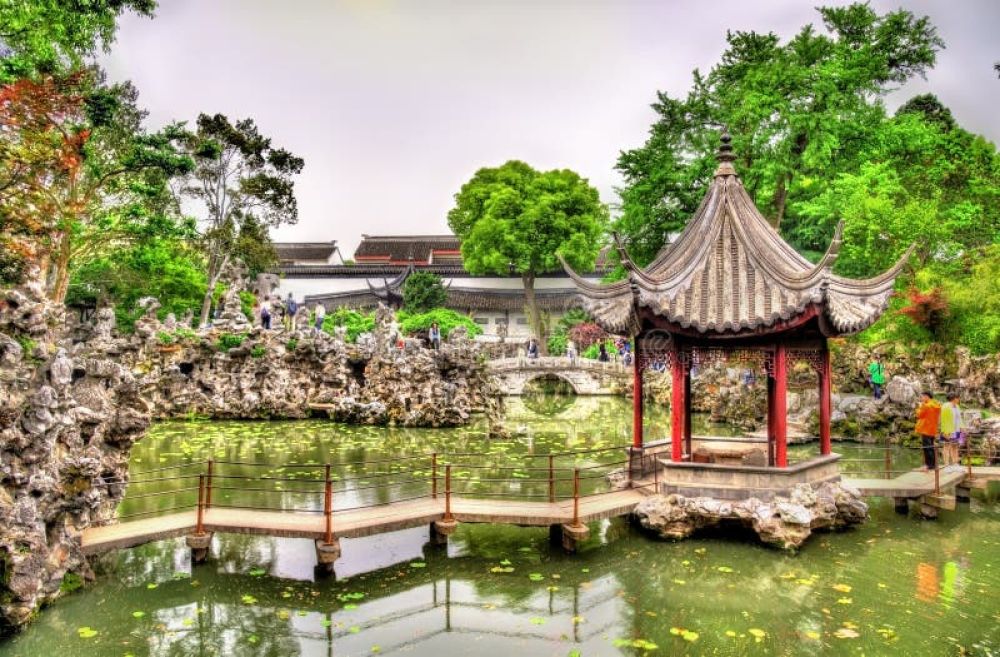

Lion Grove Garden, known locally as Shizilin Garden, is a renowned classical Chinese garden situated in Suzhou, Jiangsu Province, China. As one of the famous "Four Great Gardens of Suzhou," it has been a focal point of cultural significance and aesthetic appreciation for centuries. The garden is celebrated not only for its intricate landscaping and impressive rockeries but also for its historical and artistic value.
Originating in the Yuan Dynasty around 1342, it was initially constructed by a Buddhist monk named Tianru as a memorial for his teacher, Zen Master Zhongfeng. Over the years, the garden has passed through the hands of various owners, each contributing to its evolution and maintenance. The name "Lion Grove" is derived from the notion that the many strangely shaped Taihu rocks resemble lions.
Throughout history, Lion Grove Garden has attracted scholars, poets, and artists who sought inspiration in its tranquil environment. During the Ming and Qing dynasties, it became a hub for cultural gatherings and intellectual discourse, contributing to its reputation as a testament to Chinese garden art. Its intricate design, with interconnected courtyards and a labyrinth of rock formations, has been a source of fascination for visitors over the years.
In 1997, the garden's importance was recognized globally when it was listed as a UNESCO World Heritage Site as part of the "Classical Gardens of Suzhou." This acknowledgment has led to a significant boost in both domestic and international visitors, placing Lion Grove Garden firmly on the tourist map.
While the garden has long been a destination for the culturally astute, in recent years, tourism to Lion Grove Garden has evolved to accommodate a more diverse audience. Historical tours, cultural experiences, and even digital guides now cater to the expectations of modern tourists. The local government has taken steps to ensure the conservation and preservation of the garden while optimizing visitor experience with amenities and informative displays.
The latest trends in tourism at Lion Grove Garden involve immersive experiences that allow visitors to engage more deeply with the history and culture of the site. Virtual reality tours and augmented reality applications are being developed to help bring to life the stories and aesthetics of the garden's past. Additionally, multi-lingual services are increasingly offered to cater to an international audience.
In conclusion, Lion Grove Garden continues to be a vibrant part of China's cultural landscape, with a rich history in tourism that spans over several centuries. It remains a testament to the timeless allure of classical Chinese garden design and an enduring attraction for tourists worldwide. The blend of history, art, and nature, alongside the integration of modern technology, ensures that the garden will continue to be cherished by future generations of visitors.